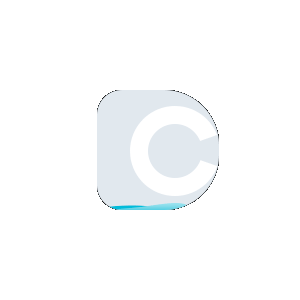Google Index Checker
Dupli Checker has an exceptional tool Google index checker which is quite convenient to use. Visit Dupli Checker and scroll down icon for Google index checker. Our highly superlative Google indexed pages Checker enables you to check index status of more than five URLs at a time.
All you have to do is to enter website URL and hit 'Submit' button, and our tool will return URL's index and Status.
- URL: The name of the website.
- Index URL: The index value of URL.
- Status: Indexed or non-indexed.
This is the result that will be displayed to you when you run our Google Index Checker tool.
If your site is not getting indexed, don't be anxious. As traffic builds and your website gains authority and relevance, Google will start to rank it. Keep checking Google index and work on getting the index to enhance. It takes sufficient time as you cannot force individuals to visit your website. Yes, you can get your family & friends to visit your website, but that is not sufficient.
Improve your links and get more authentic links. Get rid of link farms as they can seriously destruct your site. After your site is getting indexed by Google, you need to maintain it. You can do this through analyzing your site and applying search engine optimization tactics to it. Don’t rest on your achievements as your site is involved in a continual battle to retain its ranking and relevance.
Keep using Dupli Checker’s Google index checker to realize how you and your contiguous competitors are doing. Look at competitors with a higher index than you. They are your close competitors and the ones following you.
When you build up a new site or have been handling one for some time, every webmaster needs to know whether Search Engine like Google has indexed their site or not. To do this, you will have to run our free online Google index page Checker tool. Google cautiously tests every single website that goes live around the internet. It visits all websites that exist on the internet periodically.
You can observe whether Google has indexed all web pages exist on a site or you can check for every single page. Keep in mind a website may comprise off millions of pages and Google does not index them. Alternatively, a site may have only five to ten or only a single web page and Google has indexed it.
The reason for Google decides on to ignore indexing some websites containing bulk pages volume and wanting to index smaller websites are relatively simple. Google checks for links and content of a website as well as the traffic. If a smaller site is producing lots of traffic, it indicates that the website has information which is attracting to some visitors. Moreover, it has links through which traffic is coming towards website. Finally, the words in the pages and their existences are observed.
Many educational books have an index in the last part. The index is an alphabetical list of names, subjects, and words and where all do they arise in the contents of the book. A simple index list will only have the page numbers listed against subject, word or name.
If you wish to look for where a subject or name appears in the book, you will utilize the index. You will get the subject in the index list and then open the pages where it appears.
Google visits masses of websites round-the-clock. Similarly, Google generates an index of every single website that elevates its interest. You should note that it will not index every single website that it visits. If it does not find names, words or subjects that are of interest, Google will not index it.
For instance, your site does not include any actual content. It only provides headlines regarding a specific subject, and the headlines involve abbreviations. Google may choose not to index it. It does not stop Google from paying daily visits to the website relying upon the schedule it runs on. If it finds webpages that it needs to index, it will.
That is why webmasters, website owners, and SEO experts concern about Google indexing their sites. No one other than the individuals at Google search engine knows how exactly it works and the criteria sets for indexing website pages. The three elements that Google keeps in mind while indexing a webpage are; relevance, authority, and traffic.
It's Just About Your Connection
It is very quick and easy to submit URLs to Google search engine. Visit Google's web page for website URL submitting on your web browser and type your URL. Google wants to confirm that you are not a software robot and a 100% human being. So, enter the message and after Google authenticates you hit 'Add URL.'
The subsequent approach to submitting your website URL to Google is through utilizing their Webmaster Tools.
Google has said you can check for index status of any website URL through utilizing info: operator. Go into info: URL in the navigation bar and Google will display:
- Display Google's cache of “YOURWEBSITE”.
- Find web pages similar to “YOURWEBSITE”
- Find web pages from the site “YOURWEBSITE”
- Find web pages encompass the term "YOURWEBSITE."
From the options shown you can evaluate your site.
There are numerous other search engines apart from Google like Yahoo, Bing and Ask. You can submit your site's pages to them also. Though these search engines attain minor traffic in comparison with Google, yet they have billions of users.
Yahoo is powered by Bing search engine. Thus; when you submit your website to Yahoo, the Bing results display automatically. You must have a Bing login account to submit your website. Once you have made an account, just log in and submit your website URL sitemap.
Ask has disabled enabling individuals to submit sitemaps. Ask at this time only crawls websites.
 Plagiarism Plans
Plagiarism Plans  Paraphrasing Plans
Paraphrasing Plans  Reverse Image Search
Reverse Image Search 

























